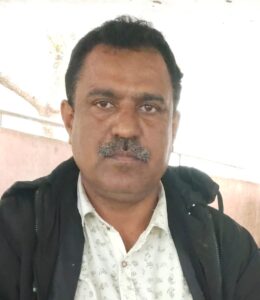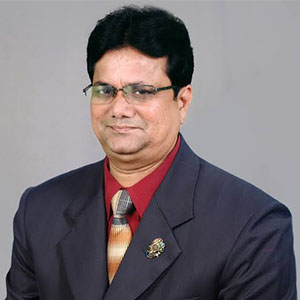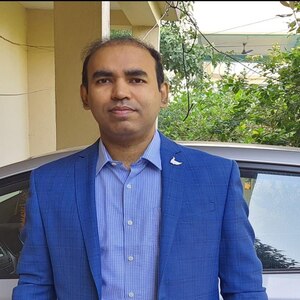Basic Sciences And Humanities
- Introduction
- HOD’s Message
- Faculty Members
- Vision & Mission
- Courses Offered
- COs
- POs
- PEOs & PSOs
- Laboratory Facilities
- Opportunities
- Achievements
-
Seminar, Workshop,
Conference, FDP, STTP - Value Added Courses
The Department of Basic Science is a major department since 2009, imparting the basic subjects like, Engg. Mathematics, Physics, Chemistry, Business Economics and Life Skills to the 1st year students. Besides, it provides lab class of chemistry, physics and language lab for the students to enhance their communications competencies. The department provides different trainings in order to increase the linguistic proficiency through fineness and perfection in English grammar, pronunciation and vocabulary as well.
Department of Basic Science extends the hands to students adopting themselves into the world of creativity and innovation. No matter, how talented the students are or which stream they come from. It is the practice and the proper training which helps them to establish in the society
 Basic science and Humanities is one of the most important departments of the college providing basic knowledge in different subjects in the first year as well as in the higher semesters. We have many experienced faculties in the subjects like Physics, Chemistry, Mathematics, English and Management, who have made significant contribution in their own fields. The aim of the department is to educate aspiring engineering students in the basic science and make them ready for the further study in the technical subjects. We also teach them the social and life skills to establish themselves in the society. It will help them to be ready for the corporate jobs and other types of placements. The major motivating factor of the department is the commitment and team work that is exhibited in the teaching learning process. Extra care is taken to offer special coaching class during weekends and crash course closer to the University Examinations, tailor – made to suit the needs of all types of students
Basic science and Humanities is one of the most important departments of the college providing basic knowledge in different subjects in the first year as well as in the higher semesters. We have many experienced faculties in the subjects like Physics, Chemistry, Mathematics, English and Management, who have made significant contribution in their own fields. The aim of the department is to educate aspiring engineering students in the basic science and make them ready for the further study in the technical subjects. We also teach them the social and life skills to establish themselves in the society. It will help them to be ready for the corporate jobs and other types of placements. The major motivating factor of the department is the commitment and team work that is exhibited in the teaching learning process. Extra care is taken to offer special coaching class during weekends and crash course closer to the University Examinations, tailor – made to suit the needs of all types of students
Students are trained in Group Discussions, Presentations and Interview skills in order to make them employable. The Department has made tremendous progress technologically. Teaching and Research should go hand in hand. The faculty members of the department actively participate and present papers in conferences and attend programmes such as workshop, seminar, FDP etc. Various guest lectures and industrial visits are arranged for the students to learn the ideas and utilize it in his/her life.
At last not the least, I congratulate all the staff and students for their relentless effort to make this institute one of the best Engineering colleges in Odisha. I wish all success in the days ahead.
Dr Abdul Kalam
HOD (BSH)
No Information Available
No Information Available
Programme Outcomes (POs)
PO1: Engineering knowledge: Apply the knowledge of mathematics, science, engineering fundamentals, and an engineering specialization to the solution of complex engineering problems.
PO2: Problem analysis: Identify, formulate, review research literature, and analyze complex engineering problems reaching substantiated conclusions using first principles of mathematics, natural sciences, and engineering sciences
PO3: Design/development of solutions: Design solutions for complex engineering problems and design system components or processes that meet the specified needs with appropriate consideration for the public health and safety, and the cultural, societal, and environmental considerations.
PO4: Conduct investigations of complex problems: Use research-based knowledge and research methods including design of experiments, analysis and interpretation of data, and synthesis of the information to provide valid conclusions.
PO5: Modern tool usage: Create, select, and apply appropriate techniques, resources, and modern engineering and IT tools including prediction and modeling to complex engineering activities with an understanding of the limitations.
PO6: The engineer and society: Apply reasoning informed by the contextual knowledge to assess societal, health, safety, legal and cultural issues and the consequent responsibilities relevant to the professional engineering practice.
PO7: Environment and sustainability: Understand the impact of the professional engineering solutions in societal and environmental contexts, and demonstrate the knowledge of, and need for sustainable development.
PO8: Ethics: Apply ethical principles and commit to professional ethics and responsibilities and norms of the engineering practice.
PO9: Individual and team work: Function effectively as an individual, and as a member or leader in diverse teams, and in multidisciplinary settings.
PO10: Communication: Communicate effectively on complex engineering activities with the engineering community and with society at large, such as, being able to comprehend and write effective reports and design documentation, make effective presentations, and give and receive clear instructions.
PO11: Project management and finance: Demonstrate knowledge and understanding of the engineering and management principles and apply these to one’s own work, as a member and leader in a team, to manage projects and in multidisciplinary environments.
PO12: Life-long learning: Recognize the need for, and have the preparation and ability to engage in independent and life-long learning in the broadest context of technological change.
v
No Information Available
The department of BSH brushes up the fundamental subjects taught in engineering courses. It clears their doubts and helps them to enhance the knowledge in the application part of engineering in the further semesters.
No Information Available

- No Information Available





